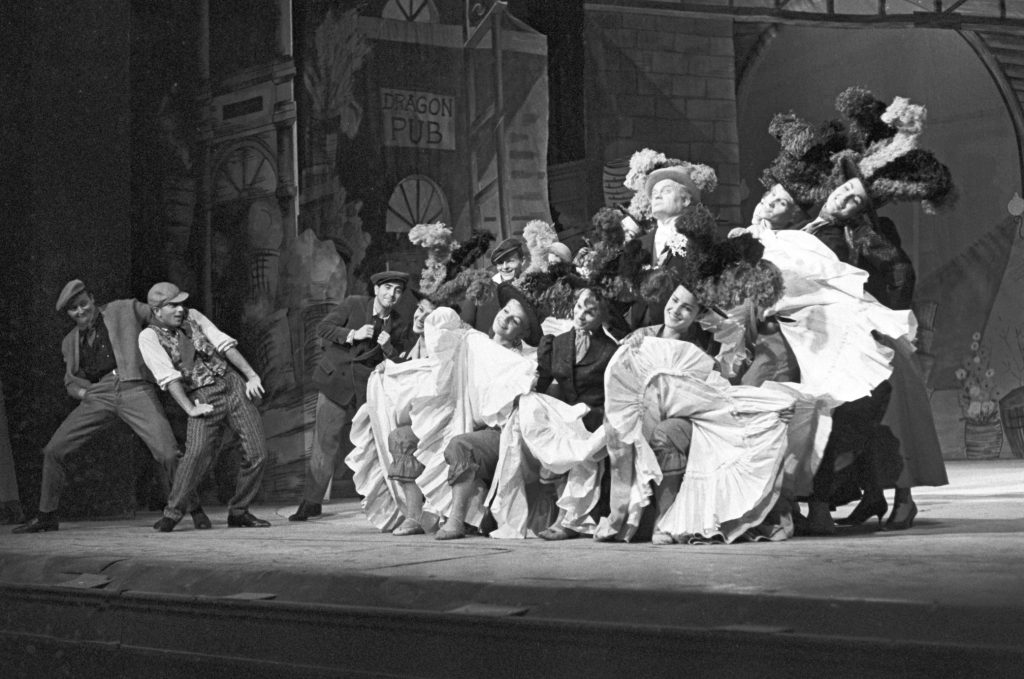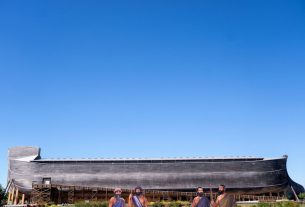The Theater des Westens is one of Berlin’s most famous music and operetta stages, and is one of the city’s most captivating scenic structures. A building with a white facade, turrets and a mixture of Renaissance, Empire and Art Nouveau elements, but which also has a lot to offer inside. TRAVELBOOK tells the story of the theater in the Berlin district of Charlottenburg, which is also popular with tourists.
The Theater des Westens, called Stage Theater des Westens since 2011, has gained fame as a stage for operas and operettas. In the 1980s it was expanded into a legendary musical theater under Götz Friedrich and Helmut Baumann. Today it is owned by Stage Entertainment GmbH. The Theater des Westens was built between 1895 and 1896 in the style of Wilhelminian historicism. The plans come from Bernhard Sehring. The site previously served as a coal depot for the C. Bolle dairy.
The theater was opened on October 1, 1996 with the fairy tale “Arabian Nights” by Holger Drachmann. But it wasn’t a classical theater for long because there wasn’t enough audience. That is why the Theater des Westens became an opera stage from 1898 and, a little later, an operetta stage.
Enrico Caruso made his debut in Berlin
It was a great success and attracted celebrities: in 1905 the world-famous opera singer Enrico Caruso made his Berlin debut here. However, the history of the theater almost came to an end in 1912: a fire badly damaged the house.
But it could be restored and a little later served as the Great People’s Opera for a while. From 1921, the basement became the location of Trude Hesterberg’s cabaret theater “Wilde Bühne”. It was here that the hit song “Who should pay for that?” had its world premiere.
A stage for the stars of the 1920s
1928 was the end of the wild stage. It was closed down and revived three years later by Friedrich Hollaender: he founded the “Tingel-Tangel-Theater” in which he showed his legendary revues. Famous guests stood here on stage.
For example, Marlene Dietrich, who rose from her seat in the audience in January 1931 and sang her hits from the “Blue Angel” at the request of the audience. Curt Bois and Bertolt Brecht, Erich Mühsam, Theo Lingen and others were also part of the crowd of celebrities who stood on stage at Tingel-Tangel or sat in the audience.
The happenings in the basement were a thorn in the side of the Nazis. In 1935 they arrested the actors Walter Gross, Günter Lüders and Walter Liek for political statements and closed the theater. Only a little later they made the big stage of the Theater des Westens the venue for the National Socialist program “Strength through joy”.
Also of interest: the Berlin Adlon, a luxury hotel with a long history
Bombs damaged the theater
Bombs ended the hustle and bustle in the Theater des Westens in 1944. But it was only closed for a short time, despite the heavy damage. As early as 1945, the Städtische Oper (now the Deutsche Oper) moved into the restored building: its opera house on Berlin’s Bismarckstraße had not survived the bombing.
On September 4, 1945, the first performance of the Berlin opera after the Second World War took place – Beethoven’s “Fidelio”. When the ensemble moved back to Bismarckstraße, the Theater des Westens era began as a stage for operettas and musicals. Frederick Loewe’s musical “My Fair Lady” was the first work to be staged.

Restoration according to the original plans
The Theater des Westens has been modernized again and again. In 1978, however, there was a clear change: the auditorium was restored according to the original plans of Bernhard Sehring, and a few years later the facade was completed.
And when Götz Friedrich became artistic director and Helmut Baumann artistic director in 1984, pieces like “La Cage Aux Folles” entered the program – works that became legendary and filled the house. The Theater des Westens is still a music stage today, at the end of 2002 it was taken over by Stage Holding, which later became Stage Entertainment GmbH, accepted. Successful productions of recent years have included, for example, “Sister Act”, “Tanz der Vampire” and “Mamma Mia!”. The musical “Romeo & Julia – Liebe Ist Alles” by Peter Plate and Ulf Leo Sommer is currently staged at the Theater des Westens. The premiere was on March 19, 2023.

(Text: Silke Böttcher)




